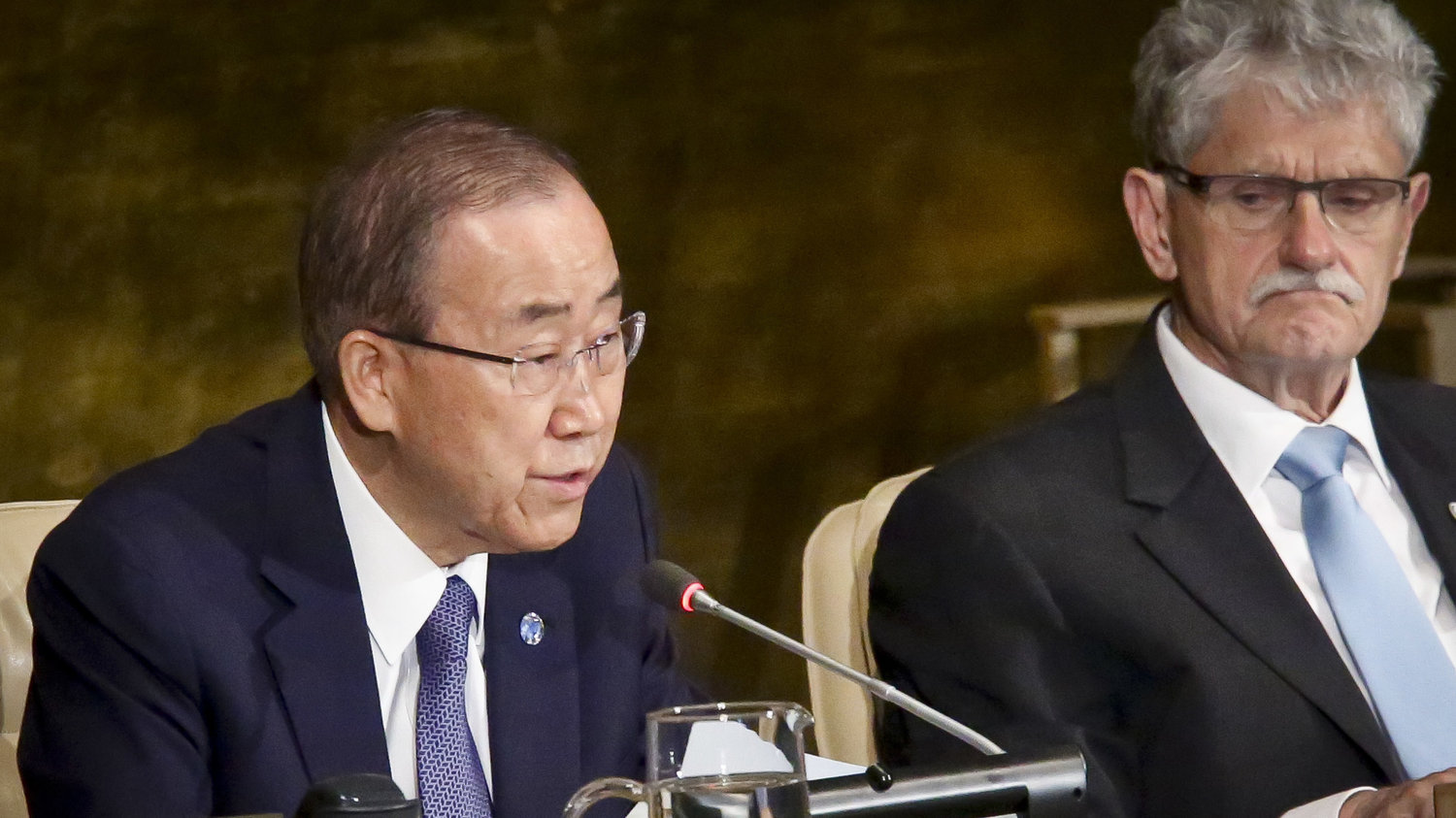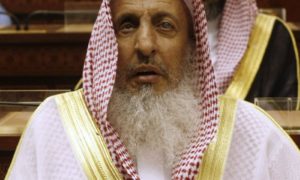United Nations Secretary-General Ban Ki-moon made a startling admission Thursday, saying he bowed to pressure over a report that blasted Saudi Arabia for child casualties that have resulted from its bombing campaign in Yemen.
Ban called it one of the most difficult choices he had to face. The U.N. report on children in armed conflict worldwide describes, in Ban’s words, “the horrors no child should have to face.”
The report held Saudi Arabia and its coalition partners responsible for about half of the attacks on schools and hospitals and 60 percent of the nearly 2,000 children killed and injured. The report stands, but Ban said he made a “decision to temporarily remove the Saudi-led coalition countries from the report’s annex,” which lists those who violate children’s rights.
He made clear that U.N. funding was at stake. “I also had to consider the very real prospect that millions of other children would suffer grievously if, as was suggested to me, countries would de-fund many U.N. programs,” he said.
He didn’t name the countries that threatened to cut off funding to the U.N., but it was clear he came under pressure from Saudi Arabia and other coalition members.
“It is unacceptable for member states to exert undue pressure,” Ban added.
Previous Cases
This isn’t the first time the U.N. has caved to pressure on its annual report on children in armed conflict.
Last year, according to human rights activists, the U.S. lobbied to make sure Israel wasn’t put on the list for its 2014 battle with Hamas in the Gaza Strip.
That was an unfortunate precedent, said Eva Smets, director of the advocacy group Watchlist on Children and Armed Conflict.
“It is very important that there’s no double standards being applied in composing this list,” she said. “That you get on this list, no exception, if you violate children rights.”
Smets doesn’t think Ban’s mea culpa was enough.
Another activist, Sarah Lee Whitson of Human Rights Watch, says it is outrageous that the U.N. secretary-general has shown once again he can be bullied.
“There’s a reason why the secretary-general called this a list of shame,” Whitson said. “It’s meant to shame countries that are abusive and have been the worst abusers of children. The notion that you can get off it if you scream loud enough and are rich enough is scandalous.”
In Yemen, hundreds of children have died in what she describes as a devastating and reckless aerial campaign by the Saudis and their coalition partners, which include several other Arab states in the Gulf.
The Saudis are fighting against Houthi rebels who control Yemen’s capital, Sanaa, and other key parts of the country. The Saudis say their archrival, Iran, backs the Houthis.
“It’s been such an ugly bombardment campaign that it’s clear that the secretary-general had no choice but to put them on the list,” Whitson said. “Because if they were not on the list their absence would be galling and shocking.”
Mouallimi, the Saudi ambassador, said his country’s delisting was permanent.
Human Rights Watch and others are lobbying hard, though, to get the Saudis put back on the list.
HUMAN RIGHTS
Saudi Arabia has long been criticised for its harsh social codes and punishments, imposed under its puritanical version of Sharia law.
Beheading:
Ali Mohammed al-Nimr was arrested in February 2012 when he was just 17 and accused of organising protests. He was sentenced to death by beheading and crucifixion, along with his uncle, a leading Shia cleric. Philip Hammond, the Foreign Secretary, said last month he did not expect the sentence to be carried out. However, murderers, drug dealers and others convicted on purely criminal charges are often beheaded in public.
Womens’ rights:
While women did in 2105 get to register to vote and can stand for local elections, they are still required to have permission from a “guardian” such as a father, husband or brother to travel freely. Wearing modest clothes and a headscarf in public is compulsory. They are also banned from driving – subject of the country’s most visible civil disobedience campaign in recent years.
The regime in Saudi Arabia has been strongly criticized by human rights organizations.
Hashtags #SueMeSaudi and #SaudiArabiaIsISIS has many hits every minute, and many want to mark their opposition and to show their distance to the brutal dictator regime in Saudi Arabia.
Saudi Arabia practice Wahhabism ideology, a strictly fundamentalist orientation within Sunni Islam, which in practice is the state religion in the country. It is also ideology direction that has inspired al-Qaida and DAESH.







